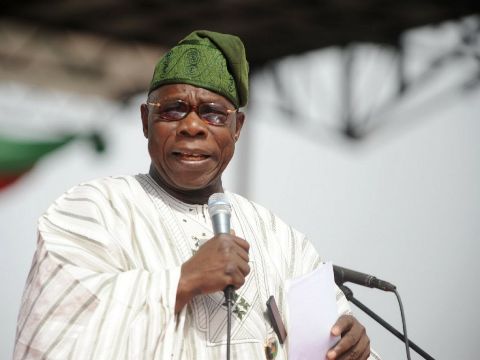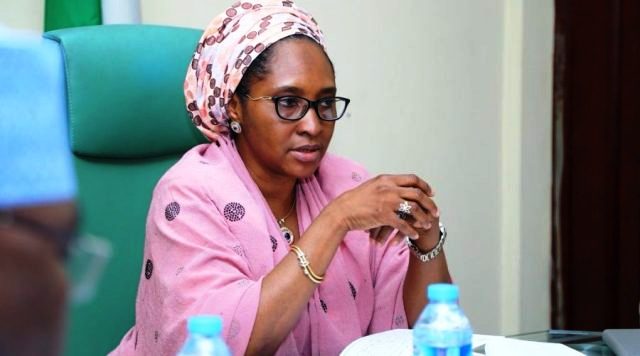Farming is becoming an attractive vocation to Nigerians because food is a basic and essential need for survival. Without food in our stomachs, everything else is meaningless. A hungry man, mind you, is an angry man; and hunger virus, just in case you didn’t know, is deadlier than coronavirus, according to some people. I’m not referring to the famous “stomach infrastructure” which has been formally adopted in our political lexicon.
Hunger is a universal language — it does not discriminate on the basis of colour, creed, region, class, status or religion. When you are hungry, the enzymes will gnaw at your intestines in the absence of food and this is the commonest cause of ulcer. The food types available — depending on affordability — and their nutritional values are a different kettle of fish altogether. According to nutrition experts who insist on balanced diets, we need an average of 2,300 calories as energy for our daily activities. This energy – after being converted to glucose — comes from the food we eat.
As I was writing this piece, my plate of fresh bitter leaf soup was served. The leaves were plucked by my wife from our “farm” at the backyard of our house. How convenient! We also have other plants including water leaf, spinach, scent leaf (efinrin in Yoruba), lemon, yam, coconut and crunchy rose apple that we harvest regularly.
Previous governments launched “Operation Feed the Nation” and “Green Revolution” but these initiatives, as laudable as they were, largely ended as mere slogans. They were politicised because we went to bed every night on empty stomachs. But it shouldn’t be so if we plan properly. Nigeria is blessed with about 84 million hectares (304, 843 sq km) of arable land and natural endowments such as favourable weather, fertile soil and an energetic youth population. The agriculture sector has the potential of providing the largest employment in the country if we embark on mechanised farming. Due to inefficiency in the process and because we have mainly small holder farmers who farm on less than half a hectare of land each, the volume per yield per hectare is small.
Recently, Alhaji Lai Mohammed, the Minister of Information and Culture and Alhaji Sabo Nanono, the Minister of Agriculture and Rural Development, announced at a joint press conference that the federal government is set to implement a programme called “Green Imperative”. Although this initiative is similar to “Operation Feed the Nation”’ and “Green Revolution” — two previous food security intervention programmes that failed woefully – it appears the approach this time is different and more strategic.
The project said to be worth $1.2 billion is a product of a Nigeria-Brazil Agriculture Development Programme that would be funded by the Development Bank of Brazil and Deutsche Bank over a period of five to 10 years based on a decision taken four years ago to enroll in Brazil’s Government-to-Government More Food International Programme. The expected benefits of this collaboration, according to the Ministers, includes strengthening food security, boosting mechanised farming, creating over five million jobs and injecting about $10 billion into our economy.
We do not need anyone to remind us that Nigeria is an important country in the world but we are yet to establish our importance and dominance because we are not associated with any known global brand. That is one way we can tell our stories that make sense to a global audience. In an earlier article, I stated that Nigeria can become famous for agriculture by establishing our leadership in a global food brand category. Africa has 21% of the world’s land mass but most of the land is not usable – only 7% is arable land.
Nigeria is the largest country out of the 54 countries in Africa. We not only have the largest population of about 200 million people but we also have the largest economy. As you can see, we are so blessed but we have refused to take advantage of our blessings and strategic positioning. We have another important characteristic — Nigeria has a larger percentage of arable land than any other country in Africa which is why Nigeria is often called The Breadbasket of Africa. Nigeria has 33% of the arable land in Africa compared to Morocco with 19%; Cameroon 13%, South Africa 12%, Ethiopia 10%, Cote d’Ivoire 10% and Kenya 8%.
Dr Akinwunmi Adesina, President of the African Development Bank (AfDB) and Nigeria’s former Minister of Agriculture and Rural Development, wants food security for Africa. “The future of food in the world will depend on what Africa does with agriculture. Therefore we must change our view on agriculture,” Dr Akinwunmi said. “Agriculture is not a development activity or a social sector; agriculture is a business. We must not use agriculture to manage poverty; instead, we must use agriculture to create wealth,” the AfDB President explained for the benefit of African leaders.
From what Dr Akinwunmi said, agriculture is big business and wealth creating sector. By 2030, Dr Akinwunmi projected that the food and agric business in Africa will hit $1 trillion, and he advised those thinking of how to make money to shift base to the sector. Even without the prompting of Dr Akinwunmi, Nigerians have come to realise that the oil wells would dry up someday and agriculture will definitely form the basis of our industrialisation.
Are you hungry? Are you ready to farm? Now is the time to join the “agriculture revolution” train – don’t be left out. Lolu Durojaiye, an audio-visual production specialist and business associate, told me he was seriously thinking of farming in view of the damaging impact of COVID-19 on businesses. “Food is an everyday need,” Lolu said to me as we reviewed the significant losses of revenue in our business activities. “I can get an acre of six plots in Odogbolu, Ogun State, for about N150,000.00. Two and a half acres makes one hectare, and to get started, it is advisable to purchase a minimum of five hectares or 75 plots of land. So with roughly N2m, I can get the land to start farming,” Lolu added confidently.
What Lolu has in mind is commercial farming which has become widespread. The truth of the matter is that we can actually feed ourselves and still have enough for the export market. Also speaking in the same vein, Thomas Ayodele, a farmer, long standing colleague and Managing Director of Ayotomi Farms Limited, told me in a revealing conversation that farming is good and very peaceful because you deal with nature. “However, farming is broad in scope and as in other professions, farming cannot be for everyone. I grow veggies which is my area of specialization,” Thomas said.
“A potential farmer should acquire knowledge through practical training (not virtual) because farming is a serious business. Once you decide you want to farm, look for a sizeable land, about 80 to 100 plots, in a remote area that is not too expensive. You must investigate the history of the land to know what you can plant. You also need to know if the soil was previously contaminated before you start planting.
“Presently, I plant tomatoes, pepper and cucumber on commercial scale. In farming, the critical success factors include land, finance, water (you have to sink a borehole) for all year round irrigation, electricity supply, quality seeds, committed farm hands, soil condition, farm implements, supply of fertilizer, access to market and knowledge of the market (understanding the forces of demand and supply), crop protection, the cultivation calendars between the northern and southern parts of the country, where to get chemicals for treatment of plants, dependable infrastructure including good roads, overcoming logistics/transportation challenges, income and expenditure analysis (proper accounting), storage facilities, functioning farm house and forging good relationships with well-established farms.
“From my experience, a vegetable farmer should be ready to work throughout the year and live on the farm. You need courage, determination, focus and patience to succeed. In addition, you need the support and understanding of your immediate family members because the work is time consuming. One of the challenges we face is that most of the farm hands are not really keen on farm work; they are just looking for jobs and a place to hide their heads until they move on,” Thomas explained in what sounded like a comprehensive lecture for undergrad students of agriculture.
Revenue from agriculture and mining activities used to be the mainstay of the Nigerian economy before we struck oil, the black gold, in Oloibiri – the historic town of the oil and gas industry in Nigeria — in 1956. As part of a deliberate strategy to diversify our economy in view of the declining fortunes of oil, the federal government is moblising resources on all fronts for the agriculture sector to regain its pre-eminent position.
The Central Bank of Nigeria (CBN), Ministry of Agriculture and Rural Development and other agencies of government have demonstrated unusual commitment to ensure the aforementioned objective is achieved. For example, in the past year, revenue from Cocoa and Sesame Seeds increased by $79.4 million and $153 million respectively.
I enjoy watching the video clip on the CBN website featuring Godwin Emefiele, the Governor, where he spoke confidently about making life difficult for smugglers who are hell bent on sabotaging the economy. These unpatriotic and recalcitrant beneficiaries of a rigged system, as Emefiele described them and I agree with him, want the status quo to continue. Why should we be importing food and other goods that we can produce in Nigeria?
In the video, Emefiele said the CBN will not waiver in its renewed focus to support improved growth in the agriculture and manufacturing sectors in view of government’s efforts to diversify the economy and move away from oil. The intention is to insulate the economy from the volatility of crude oil prices, especially after the pandemic hit the world.
Information available at CBN website also indicated that about a year ago, the CBN launched an intervention economic programme that was aimed at reviving the poultry sub-sector including creating jobs and engendering inclusive economic growth. The poultry industry valued at about N1.5 trillion cannot be ignored in view of its strategic importance. For a moment, just think of the quantity of chicken and eggs consumed on a daily basis in the country. What CBN did was to select “poultry institutions” across the country to produce chicken and eggs to reduce importation and close the existing demand gap. However, smuggling and lopsided siting of hatcheries, according to Ezekiel Ibrahim, President of the Poultry Association of Nigeria, are challenges that are still being faced by poultry farmers.
In his Democracy Day Broadcast on June 12, President Buhari stated that agriculture is the key to our diversification strategy because we cannot depend on oil revenue forever. Through the food security initiative of the federal government, we now “Grow What We Eat” and “Eat What We Grow”. The President said he was delighted to note that more and more Nigerians are taking advantage of the opportunities in agriculture and the agri-business sector. President Buhari also said Africa presents a huge opportunity for our export base diversification which we can achieve by growing intra-Africa trade through the Africa Continental Free Trade Area Agreement.
The Anchor Borrowers programme is a worthwhile and productive intervention by the CBN in the agriculture sector. According to Alhaji Sheriff Balogun, President of Sesame Seeds Farmers Association of Nigeria, the loans provided through the programme have been helpful. “Farmers can now access soft loans at 9% interest rate through the Farmers’ Association or Co-operatives and increase their yield,” Alhaji Balogun, who is also Deputy President of the Nigerian-American Chamber of Commerce (NACC), said in an appreciative voice. “The way the loan has been packaged does not allow for abuse. For each crop, the economics of production has been determined in advance. For example, N164,000.00 is what is required to grow one hectare of sesame seed and that is the loan that would be approved in the first instance,” Alhaji Balogun further disclosed. By the way, Nigeria is the 4th largest producer of sesame seeds in the world.
In the past, small holder farmers could not afford the cost of fertilizers due to racketeering activities of middlemen but the song and dance have since changed. The Presidential Fertilizer Initiative (PFI) under the auspices of the Nigerian Sovereign Investment Authority (NSIA) has ensured that farmers can now purchase a 50 kg fertilizer bag for N5,000.00. With the revival of 31 blending plants nationally, PFI has shown that government agencies can be focused, transparent and result-oriented. The success story of PFI was well told by Aniebo Nwamu, an entrepreneur and part time farmer, in his article recently.
Nigeria is currently the largest producer of yam in the world but we are yet to leverage the huge economic benefits of this leadership position. This is where the Nigeria Export Promotion Council (NEPC) comes in. NEPC, from my findings, was set up to promote export in various ways but it appears the agency needs to do more to encourage export initiatives such as providing incentives for exporters. Incentives may be grants for exporters to attend international trade shows and advertise their products in trade magazines. In addition, NEPC, in fulfilling its mandate, should engage in more advocacy and shuttle diplomacy with overseas markets/buyers. By sharing information on feasibility studies carried out by NEPC, Nigerian exporters would find it easier to develop routes to international markets. I still do not understand why Ghanaians will buy our yams, brand them with their logos and export same from their country to overseas buyers thereby shortchanging us. What’s going on?.
Apart from yam, Nigeria can develop competitive advantages for cassava (Nigeria is the second largest producer of cassava in the world), beans, maize, palm oil, sesame seeds, ginger and hibiscus flower (used for making Zobo drink). Industrial and pharmaceutical starch is processed from maize to meet local requirements. Unfortunately, we are unable to export cassava because our price is not competitive. Transportation and logistics management challenges as well as the cost of getting cassava ready for export are prohibitive. Thailand is the leading producer of cassava in the world and China, that is next door, is one of the biggest consumers of the product. It is cheaper for China to buy Cassava from Thailand. Processing cassava requires a lot of water which explains why a major cassava processing factory was sited in Lokoja, Kogi State.
Another area we are unable to meet local demand is palm oil consumption although Akwa Ibom State is where palm oil is produced in large quantities. The yield is low due to the age of the palm trees – they have outlived their useful lives. Whereas some organisations such as Okomu Oil Palm Company Plc, Presco Plc and several other local producers are investing in palm oil plantations and processing with good returns on their investments, a few others are still importing from some of the world’s leading producers. The countries with the highest consumption of palm oil in the world are Indonesia, Malaysia, India, China and Thailand. Indonesia is the largest producer of palm oil in the world followed by Malaysia – both countries account for 84% of the world’s palm production.
It is expected that organisations that use large quantities of palm oil as raw materials for their products will embark on backward integration instead of depleting our lean foreign exchange reserves through importation. In a strategic move that is commendable, Edo State government and CBN are partnering to set up new palm oil plantations to boost local production. Niger State government has also embarked on a similar initiative by setting up large scale palm oil plantations on over 20,000 hectares of land to reduce dependence on the importation of palm oil, create employment and eradicate poverty.
Rice cultivation and harvesting have also received the attention of the federal government because of the support from the Anchor Borrowers Programme. Every family menu contains rice meal including the famous “Naija Jollof Rice”. Gone are the days when we ate rice only at festive periods – we now eat rice, our dear staple food, every other day! We cannot do without rice in our homes, parties, hotels/restaurants and so on. Even “Ofada” rice is now part of our regular menu. Although Kebbi and Lagos States gained the upper hand in terms of branding “LAKE RICE” through a very innovative collaboration initiative thereby giving them top of mind awareness, Niger State remains the largest producer of rice in Nigeria. There are rice farms in Minna, Mokwa and Bida in Niger State extending to Pategi in Kwara State.
Adamawa, Kano, Benue, Kaduna, Taraba, Nassarawa, Anambra, Ebonyi, Cross River and Edo States have also shown great promise in rice production. By now, we should have been producing enough rice to meet our local demand but that is not the case. Even when the federal government introduced high import duties on rice to discourage importation, the popular staple food is still being smuggled into the country through land borders. This is because Nigeria still holds the unenviable record as one of the world’s largest importers of rice which is shipped mainly from Thailand and India. About 80% of rice imported through Cotonou, the capital of Benin Republic, is meant for the Nigerian market.
CBN, based on directives from President Buhari, has continued to refuse requests from food importers in a bid to boost local agriculture and conserve our foreign exchange. This has resulted in increased production of domestic rice although we still need to do more to meet local demand at a time food prices are going up – it is this gap that is being exploited by importers. In spite of government’s best efforts including spending $165 million last November to subsidise rice production, according to a report by Kunle Falayi for BBC Africa Business, the grain is still being smuggled into the country. Data from UN’s Food and Agriculture Organisation (FAO) indicated that rice production in Nigeria has increased from an annual average of 7.1 million tonnes between 2013 and 2017 to 8.9 million tonnes in 2018.
Overall, Nigeria spends heavily on food imports every year and the major imports include wheat, sugar and fish. However, data from the CBN and the National Bureau of Statistics (NBS) is confusing – both agencies of government are quoting different figures. Whereas NBS says our annual food bill is averaging $4 billion, the CBN governor announced last December that the annual food import bill stands at $1.9 billion, a drastic fall from $7.9 billion from 2017. Meanwhile, in September 2018, Audu Ogbe, former Minister of Agriculture, stated that Nigeria spent $22 billion importing food every year.
From all indications, the government policy restricting food imports will continue even when we cannot meet domestic demands. With shrinking oil revenue amid COVID-19 setback, investing in agriculture remains an attractive option amongst other government initiatives — we must therefore till the land to feed ourselves.
Braimah is a public relations and marketing strategist based in Lagos






